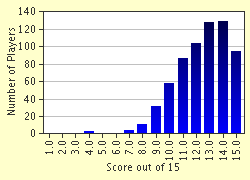Quiz Answer Key and Fun Facts
1. You need to toughen your nipples before the baby is born to be able to breastfeed.
2. A poorly attached baby can cause sore, painful or cracked nipples.
3. After four weeks of age, babies do not need to be fed more often than every four hours.
4. Being physically unable to breastfeed runs in some families.
5. Thrush can cause searing pain in the breast and nipple.
6. Breastfed babies are more likely to be fat than bottle-fed babies.
7. Breastfeeding a son for too long will make him homosexual.
8. In summer, breastfed babies need extra water in a bottle.
9. Feeding a baby too often will spoil him or her.
10. You need to drink milk to make milk.
11. For the first few days after a baby is born, its mother produces a very small amount of a special milk called colostrum. Full breast milk usually is not made until a few days after the baby is born.
12. You should wean when baby gets his or her back teeth.
13. Women with very small breasts cannot breastfeed.
14. Breastfed babies are healthier than formula-fed ones.
15. Some babies with high birthweights are just too big for their mothers to breastfeed.
Source: Author
carolinebee999
This quiz was reviewed by FunTrivia editor
crisw before going online.
Any errors found in FunTrivia content are routinely corrected through our feedback system.


